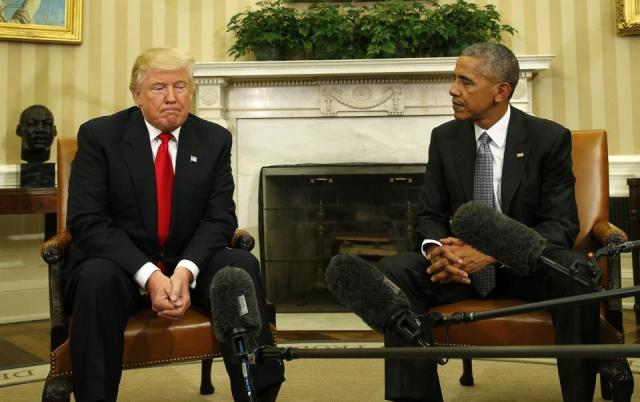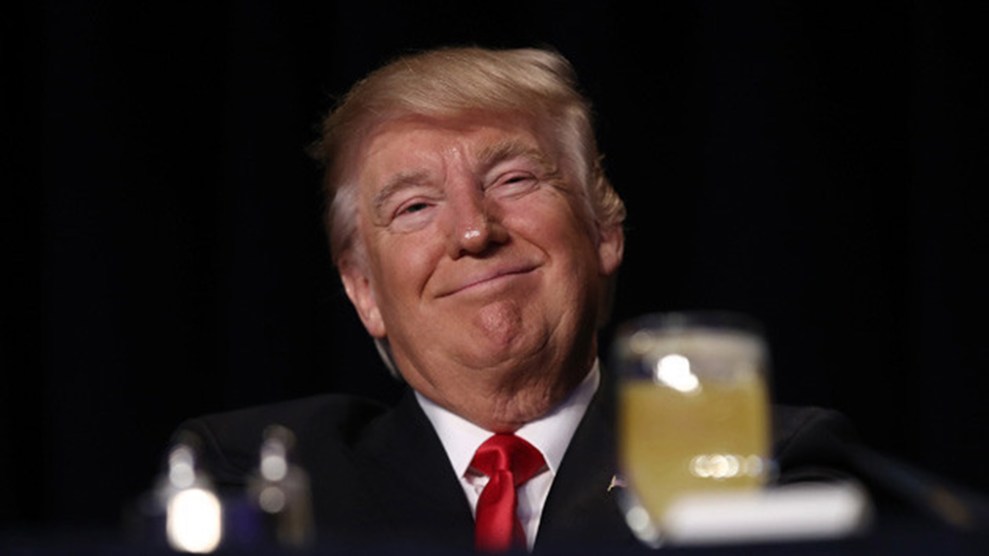Yahoo Sports
Colin Kaepernick’s grievance all but ends any shot of QB playing in NFL
Charles Robinson, Yahoo Sports October 16, 2017
For months, some close to Colin Kaepernick debated whether he should cross the ultimate line. The one you don’t come back from in the NFL. The one that casts a person into football exile permanently. No matter how much it felt like Kaepernick was being blackballed or that team owners might have been conspiring against him, there was a well-defined line between thinking it and saying it. A line between faint hope and career-ending finality. To breach it, and effectively speak out against the shield, was to concede that the league’s door had closed forever.
Today, Kaepernick is there.
By all accounts, his NFL career is over. But his opportunity to challenge the league, and to step far over the line that few have gone near, has just arrived. That’s what the grievance he has filed against the NFL represents: an end, a beginning and a stronger position than before.

It will cost him any faint chance he might have had of getting back on an NFL field. His grievance is loaded with monster allegations and seeks to dig deep under the nails of franchises. That all but assures that no team will ever take a look at him again. Not a call. Not a workout. And most definitely not a paycheck. While some (or many) owners see taking a knee during the national anthem as disrespectful, all of them feel that way about a litigious kick in the ass.
That’s what Kaepernick delivered, accusing NFL owners of scheming to end his career because of his outspoken social activism, and then bowing down to the political pressure of President Donald Trump, who has railed against NFL player protests. And he’s dropped the accusations on the doorstep of the league’s fall meetings in New York, making it a virtual certainty that both the owners and commissioner Roger Goodell will once again be confronted about why he isn’t in the NFL.
If the finance of sports has shown us anything, billionaires don’t react well when being called on the carpet for their decisions. Even less so when they feel they’re being told how to conduct their businesses. And when it’s a player challenging them in the legal realm, it’s basically the career kiss of death. Particularly if that player is someone like Kaepernick, whose fan popularity skews to either heroic or hated. If he was indeed facing an orchestrated freeze-out before this moment, it’s a safe bet his accusations of collusion and conspiracy will deliver his career only into the deepest of nuclear winters.
Of course, that’s not an earth-shattering outcome to some around Kaepernick, who have long-believed he has been on the league’s blacklist. They’ve suspected as much since the summer, after months of the NFL efficiently sending the message that he wasn’t wanted. As reporters asked why he wasn’t getting a chance, Kaepernick’s supporters saw only what they believed to be a litany of anonymous and wholly fabricated lies: that Kaepernick wanted too much money; that he wouldn’t sign to be a backup; that he was too poor of a player; that he cared more about social activism than being an NFL player. And then there was the reasoning that left Kaepernick’s camp absolutely flabbergasted – that he was too good to sign for a backup position when interested teams already had a defined starter.
In the end, every one of those justifications pushed Kaepernick closer to his belief that the past seven months were all a choreographed show. That behind the scenes, NFL owners had come to a collective decision that he was no good for their game. And that each time someone debunked the reasons why he wasn’t on a team, the NFL came up with something new to feed the masses and denounce him.
Deep down, what Kaepernick and some around him have long believed is what is now laid out in his grievance: That the NFL wanted to be rid of him because of his outspoken voice and the wave of social activism that he triggered. That he was too dangerous to a brand that craves power, control and muted obedient labor. By putting those accusations out there, Kaepernick will strike his career down. And in doing so, he may become a more powerful voice in how the NFL handles outspoken players.
That’s where the beginning lies in all of this. For months, Kaepernick has shunned interviews. Primarily for two reasons: He didn’t want to be seen as begging some NFL team for a job; and keeping quiet limited the ability of others to twist his voice into controversy, and destroy any chance he had of playing in the league.
There was a consequence of that duality. The vast majority of NFL teams simply never called and he never got close to signing anywhere. Also, others were left to speculate about Kaepernick’s thoughts and feelings while the league’s social activism moved forward without him.

Now? All of that is poised to change. With the grievance filed and Kaepernick well-aware that he has crossed a boundary of no return, there is no incentive to remaining silent. He no longer has anything to lose. If he chooses, his life’s work can now become two things: proving the NFL has been operating with a hidden agenda against him; and vocally re-entering the social activism realm that largely hasn’t heard his voice for more than a year.
If none of that suits Kaepernick, the very least he can do now is defend himself. Against the NFL. Against the hatred of some fans. And against a president who has invoked his name and turned his efforts into a viable political platform.
The line has been crossed and the league’s door has closed. But other portals are ready to be opened. Now Kaepernick finds himself with a voice again – with nothing to lose and no need to hold back. He’s standing at a new line, between the end of his career and the beginning of something else. All he needs to do now is choose where he goes next.


 President Trump is expanding the culture wars, launching new attacks against institutions that he views as liberal, elitist or both.
President Trump is expanding the culture wars, launching new attacks against institutions that he views as liberal, elitist or both. The damage is not catastrophic. But it is real and it will linger.
The damage is not catastrophic. But it is real and it will linger. Donald J. Trump as Many Imagine Him in Class at Wharton on the Rare Occasions that He Attended Class
Donald J. Trump as Many Imagine Him in Class at Wharton on the Rare Occasions that He Attended Class Then-President Barack Obama meets with Donald Trump, who was then president elect, to discuss transition plans in the White House Oval Office, November 10. President Trump got a small bit of good news in the polls, but he’s more than a dozen percentage points behind where Obama was in 2009. Kevin Lamarque/Reuters
Then-President Barack Obama meets with Donald Trump, who was then president elect, to discuss transition plans in the White House Oval Office, November 10. President Trump got a small bit of good news in the polls, but he’s more than a dozen percentage points behind where Obama was in 2009. Kevin Lamarque/Reuters Win Mcnamee/Pool/CNP/Zuma
Win Mcnamee/Pool/CNP/Zuma epa06169232 US President Donald J. Trump attends a joint news conference with President Sauli Niinisto of Finland in the East Room of the White House in…MICHAEL REYNOLDS
epa06169232 US President Donald J. Trump attends a joint news conference with President Sauli Niinisto of Finland in the East Room of the White House in…MICHAEL REYNOLDS